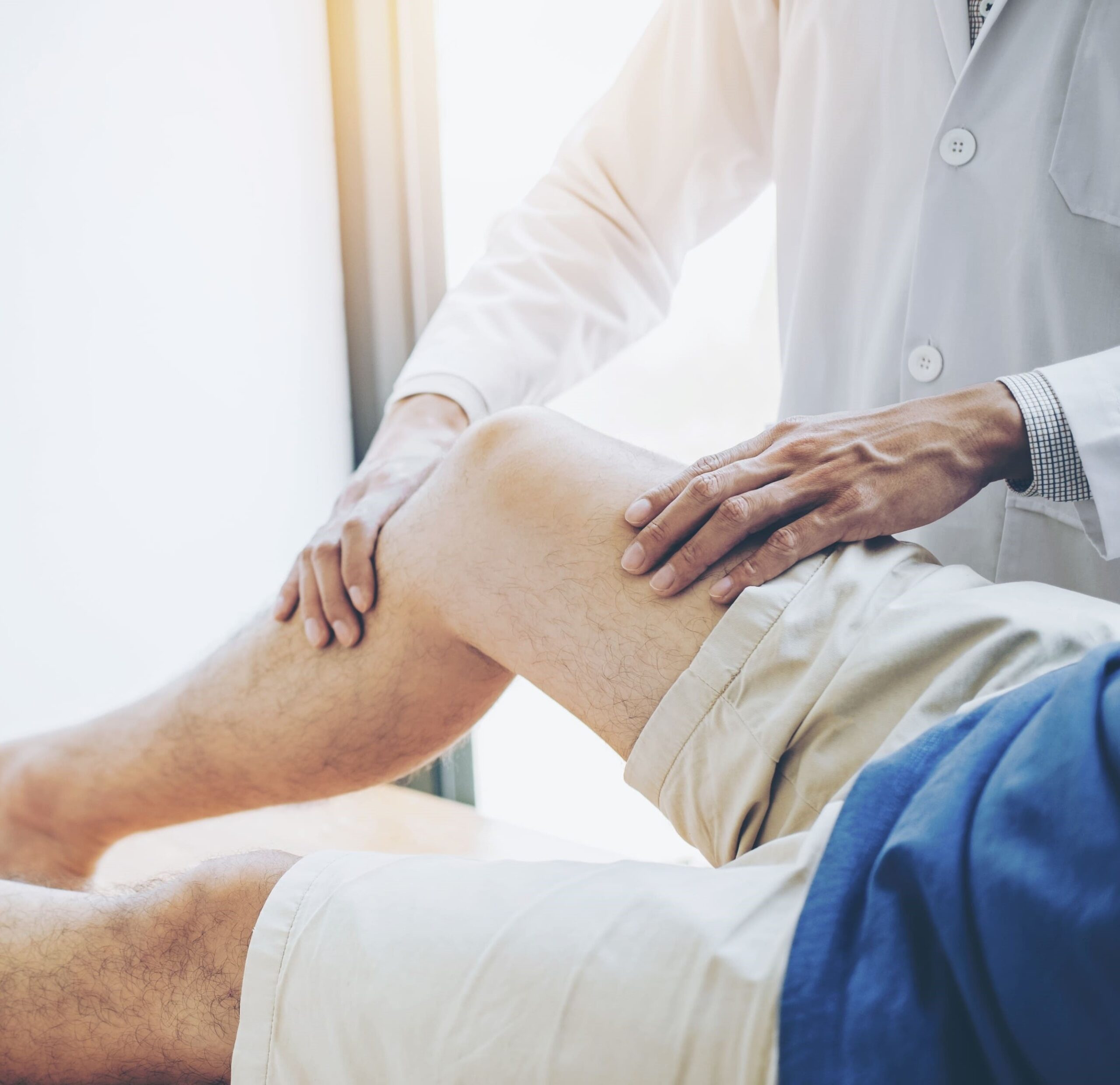Schedule An Appointment Within 24 Hours
Are Your Symptoms Affecting Your Quality Of Life?
Consult our MOH-accredited knee pain specialist for a comprehensive diagnosis of your condition & a personalised treatment plan
Dr. Poh specialises in advanced orthopaedic procedures such as knee arthroscopy, osteotomy, multi-ligamentous ligament reconstruction, meniscal reconstruction & cartilage resurfacing.
Are your knee pain symptoms affecting your quality of life? Consult our MOH-accredited knee pain specialist for a comprehensive diagnosis of your condition & a personalised treatment plan.
MBBS
MRCSEd
MMED (Ortho)
FRCSEd

The knee, as one of the body’s primary load-bearing joints, is susceptible to a variety of complications and disorders. This can be resolved with the correct medical examination and care. Our clinic offers services for the following conditions:
Knee pain may arise from a variety of conditions affecting any of the complex structures of the knee joint, including bones, cartilage, tendons, ligaments, and muscles.
Symptoms from knee conditions can range from mild to severe, affecting mobility and quality of life. These are some common symptoms that may indicate that you have a knee condition.
Clinical Assessment |
|
Imaging Studies |
|
Laboratory Tests |
|
Functional Assessment |
|
Surgical intervention may be considered when non-surgical treatments fail to relieve knee pain or when structural damage to the knee joint is significant.
Knee pain can be prevented by integrating the following strategies into daily life:
Schedule An Appointment Within 24 Hours
Consult our MOH-accredited knee pain specialist for a comprehensive diagnosis of your condition & a personalised treatment plan

MBBS
MRCSEd
MMED (Ortho)
FRCSEd
With over 18 years of experience, Dr Poh Seng Yew is an orthopaedic surgeon specialising in hip, knee, shoulder and elbow surgery, sports medicine, and trauma surgery.




Weekdays: 9.00am – 5.00pm
Saturdays: 9.00am – 1.00pm
Sundays and Public Holidays: Closed
Your symptoms shouldn’t affect your quality of life or disrupt daily activities. Reach out to our friendly clinic staff today & schedule a consultation.
Yes, knee pain can be indicative of significant conditions such as fractures, ligament injuries, and infections.
Acute knee pain may resolve by itself with rest and self-care, although persistent or severe pain requires medical evaluation.
Consult a knee pain specialist if your knee pain is severe, associated with swelling, redness, and warmth, or if it persists despite rest and over-the-counter medications.
Surgery is considered if there is structural damage that is not amenable to conservative treatment, or if knee pain significantly affects quality of life.